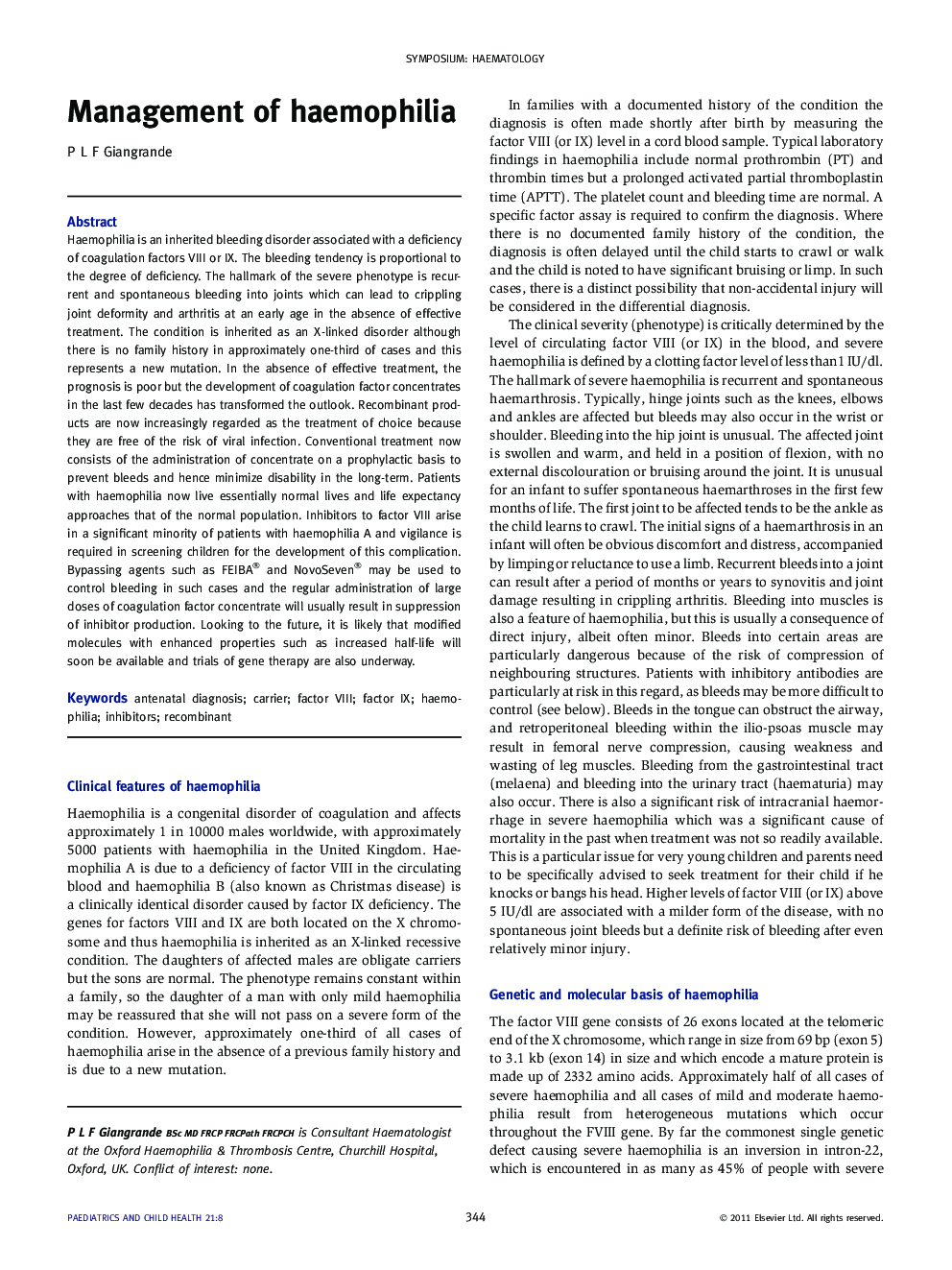| Article ID | Journal | Published Year | Pages | File Type |
|---|---|---|---|---|
| 4172673 | Paediatrics and Child Health | 2011 | 4 Pages |
Haemophilia is an inherited bleeding disorder associated with a deficiency of coagulation factors VIII or IX. The bleeding tendency is proportional to the degree of deficiency. The hallmark of the severe phenotype is recurrent and spontaneous bleeding into joints which can lead to crippling joint deformity and arthritis at an early age in the absence of effective treatment. The condition is inherited as an X-linked disorder although there is no family history in approximately one-third of cases and this represents a new mutation. In the absence of effective treatment, the prognosis is poor but the development of coagulation factor concentrates in the last few decades has transformed the outlook. Recombinant products are now increasingly regarded as the treatment of choice because they are free of the risk of viral infection. Conventional treatment now consists of the administration of concentrate on a prophylactic basis to prevent bleeds and hence minimize disability in the long-term. Patients with haemophilia now live essentially normal lives and life expectancy approaches that of the normal population. Inhibitors to factor VIII arise in a significant minority of patients with haemophilia A and vigilance is required in screening children for the development of this complication. Bypassing agents such as FEIBA® and NovoSeven® may be used to control bleeding in such cases and the regular administration of large doses of coagulation factor concentrate will usually result in suppression of inhibitor production. Looking to the future, it is likely that modified molecules with enhanced properties such as increased half-life will soon be available and trials of gene therapy are also underway.
